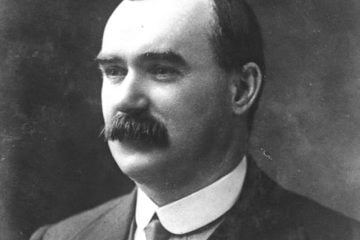Chapter One: The development of utopian socialism
Summary
- The philosophy of the bourgeois revolutions (such as the French Revolution) established Reason as the only thing capable of justifying the existence of things (enlightenment philosophy).
o The bourgeoisie’s demands were limited to political equality, whereas certain movements at this time began demanding economic equality, not just political rights.
o These movements saw themselves as offering liberation, not to a particular class, but to humanity as a whole.
- These ideas arose because the birth of capitalism brought with it the poverty and misery of the working masses.
o Capitalism was in its infancy, without a developed proletariat or forces of production, thus the solutions to the problems of capitalism were inevitably utopian, derived solely from thought rather than material reality.
- Saint-Simon recognised that the bourgeois revolution signalled nothing but the conquest of political power by the propertied bourgeoisie, leaving the workers and peasants open to continued exploitation in a new way by a different ruling class.
- Fourier made similar criticisms and also recognised the development of history through ceaseless change and contradiction.
- Robert Owen adopted a materialist philosophy and set up experimental Communist communities.
- Because they are not founded upon material reality, utopian socialists consider their ideas as absolute truths that can simply be discovered and put into practice.
Discussion questions
- To what extent would it be true to say that the bourgeois revolutions were philosophically dishonest?
- In what way were early socialist ideas utopian?
- Why is absolute truth, reason and justice an inadequate basis upon which to found socialist ideas?
Chapter Two: Dialectics
Summary
- Dialectics, first expounded by the ancient Greeks, consists of understanding the world as a mass of interconnections, changes and contradictions.
- Metaphysics takes individual phenomena and places them under isolated examination, separating them out and contrasting them with all other things.
- Metaphysics is necessary and useful for understanding phenomena, but is inadequate on its own because it fails to appreciate the connections between things in their change and motion. This is why dialectical thinking is important.
o Natural science makes extensive use of metaphysics, but a proper understanding of nature demonstrates that it only makes sense from a dialectical point of view.
- Hegel was the first to master the dialectical view of things, but his philosophy is limited by material factors and by his own idealism.
- When dialectical reasoning is applied to history and society as a whole, the beginnings of capitalism and its continued existence can be explained, not just decried as “bad”.
Discussion questions
- What is dialectics?
- What is the relationship between metaphysics and dialectics?
- To what extent did Hegel’s philosophical idealism limit his application of dialectics?
Chapter Three: Historical Materialism
Summary
- Historical materialism consists of the understanding that the forces of production are the basis of all social structure.
- The seeds of the capitalist economy were present in the feudal economy and, through the bourgeois revolutions, the former asserted itself over the latter.
o The contradictions within economic systems lead inevitably to social contradictions.
- Under capitalism the major economic contradiction between socialised production and private appropriation is manifested in the social contradiction between proletariat and bourgeoisie.
o The further contradiction between organisation in the individual workplace and anarchy in production as a whole leads to greater proletarianisation as capitalism develops, through machinery and globalisation.
- When these contradictions become too great, the forces of production are fettered by the social system them have created. This causes economic and therefore social crisis.
o The only way to resolve these crises is to recognise the socialised nature of production and reflect that with socialised appropriation i.e. take the forces of production out of private hands and place them under democratic public ownership.
o This is the nature of socialist revolution – the proletariat seizing political power and placing the productive forced under their control to be planned, organised and used to their full potential by the majority of people.
- Such a revolution is only possible once a certain stage in historical development has been reached. We are now at that stage.
Discussion questions
- Why does Engels consider the forces of production to be the basis of all social structure?
- What are some of the contradictions inherent to the capitalist mode of production?
- Why could the ideas of scientific socialism only be developed at a certain historical stage?
- What does Engels mean when he says that socialism is “the ascent of man from the kingdom of necessity to the kingdom of freedom”?



